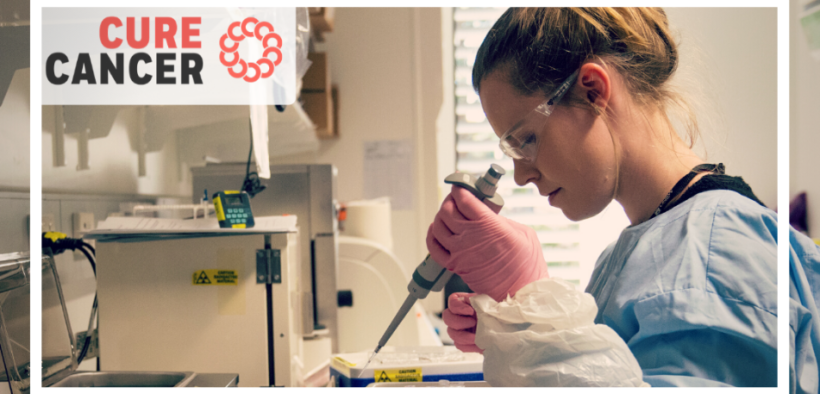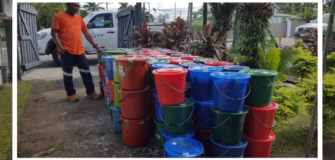Our cancer researchers are doing everything they can to ensure that their work doesn’t stop, but with labs closing down across Australia and international travel brought to a halt, this is becoming increasingly difficult.
“Until recently, we were still working in the Institute, but all meetings, seminars, and conferences have been cancelled. Many of us have already missed out on important overseas collaboration opportunities,” says Dr Jessica Duarte, an immunotherapy researcher at the Olivia Newton-John Cancer Research Institute in Victoria. Like many researchers, Jessica, whose work focuses on establishing more effective immunotherapy treatments, is concerned about how the current situation will impact on funding for cancer research.
“The situation is unprecedented, and understandably several funding agencies are redirecting funds towards much needed COVID-19 research,” she says. “In addition, due to restrictions on social gatherings, major cancer research fundraising events have been cancelled. But cancer continues to affect our community as it did before, and cancer research remains vitally important. It is crucial that once we have overcome COVID-19 as a community, we can refocus our attention to cancer. To do so, we need to ensure funding is available.”
The potential for positivity
Thankfully, though, there may be some good news on the horizon. Immunotherapy researcher Dr Arutha Kulasinghe, whose Cure Cancer grant is funded by the Can Too Foundation, is hopeful that the research into a COVID-19 vaccination could have a positive impact on his work.
“My research is in developing predictive biomarkers of response to immunotherapies so that patients can be identified for these highly effective treatments,” he explains. “I am looking at this through the spatial analysis of the tumour microenvironment.”
“Recent data shows that injection with the annual flu shot turned immunologically cold tumours into hot tumours, making the tumours more responsive to immunotherapies. Whilst this work has only be done using the flu vaccine, there could be scope for using the COVID-19 vaccine once developed which may have direct impacts for cancer patients – a really exciting space when thinking about finding ways to improve response to immunotherapies by using immune-stimulating mechanisms.”
It is groundbreaking developments like this that further underline the need to fund these incredibly talented young researchers, whose commitment to innovation is bringing us ever closer to finding a cure.
The importance of innovative research
18.1 million people around the world find out they have cancer every year. The only way we can improve this statistic is by investing in trailblazing research.
Over our 53 year history, Cure Cancer has funded over 528 research grants, all of which have been based on innovative, groundbreaking hypotheses like Arutha’s. As a result, some of the researchers we took a chance on early in their careers are now leaders in cancer research globally.
Heartbreakingly, our ability to continue this funding has been severely compromised. The disruption caused by COVID-19 has brought fundraising close to a standstill and we are now fighting to ensure we can continue to support the crucial work of future cancer researchers.
Cure Cancer is the only charity in Australia that exclusively funds researchers at the very start of their careers, thus creating a pipeline for future research success. If we can’t provide this funding, we stand to risk the long-term future of cancer research.
That’s why your generosity is more important than ever.
Advances in immunotherapy have the potential to change the outlook for countless cancer patients around the globe. We can’t let research like this stop.
Nikki Kinloch is the CEO of Cure Cancer, the only Australian charity dedicated exclusively to funding early-career cancer researchers. Since 1967, Cure Cancer has funded over 528 research grants and invested $69.1m into cancer research. Their mission is to make this the last generation to die from cancer.


































































































































































